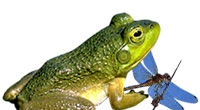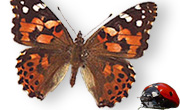Fax: (916) 381-4006



Login now |
Many of our customers find themselves placing "repeat" orders on a
regular basis. To make it easier and quicker to place your repeat
orders, you can opt to
establish an account with us. Setting up an account allows the
system to "remember" your last order and simply make one click to repeat
it. It is NOT necessary to set up an account to be able to purchase from our site, it is simply an option to make things more efficient. Should you choose to set up an account it is simple and there is no charge. Naturally your information is protected and kept strictly confidential.. |
|---|

We are currently open Monday through Thursday from 8am until 4pm. We will be closed for Christmas from Dec. 20th through Jan. 2nd.
We are not a retail store, if wanting to pick up items please call ahead and schedule an appointment. Thank you.
All items are sold for educational purposes only! We do not sell pets.
GREETINGS FROM NILES BIOLOGICAL We have gone the extra step of including information about the many specimens we provide that will compliment and augment the study experience. Naturally we offer many products for biological study, but we also provide your students with a “searchable mini-encyclopedia” built right into the presentation of our products. We encourage teachers to introduce your students to our site, so they can browse and discover all the information available. We have been in business for over 30 years look forward to many more exciting years to come. We would like to take the opportunity now to thank everyone for doing business with us and if we can help to better serve you in the future – please let us know. Need to talk to someone, call 916-386-2665. PREPARING TO ORDER To ensure delivery when you need it, place your order one week in advance. While some items can be delivered in a shorter time, please try to give us adequate time. Remember that this is biology, and some items are seasonal. Due to the high mortality rate experienced with specimens shipped over the weekend, we will guarantee live delivery only on orders shipped Monday through Wednesday. Also, keep in mind holidays when scheduling delivery. We do not have a minimum order; however, we do follow the Packaging and Handling Schedule listed below. Please Note: Totals given after you place your order do NOT include shipping and handling charges. ** If you would like assistance with shipping charges please call us at (916)386-2665. GUARANTEE: 100% An important note about Barn Owls: The Barn Owl (Tyto alba) is one of the most wide-spread of all land birds. Sometimes they are called monkey-faced owls because of their appearance. Other common names are church owl, golden owl, rat owl, and stone owl. They are found on all continents (except Antarctica) and large islands and occur over the whole of Australia, including Tasmania. The Barn Owl is found in virtually all habitats but much more abundantly in open woodland, heaths and moors than forested country. They usually roost by day in tree hollows but have also been found in caves, wells, out-buildings or thick foliage. Barn Owls feed on voles, frogs and insects, but are economically valuable birds as they also prey on animal pests like rats, shrews, moles and mice. Like most birds, Barn Owls do not have teeth to chew their food. Once caught, the Barn Owls prey is swallowed whole. In some cases larger prey may be ripped into more manageable size pieces before being swallowed. After being swallowed the prey is then processed by the Barn Owl so that the owl can make use of all the nutrients it needs to survive. The prey goes directly to the gizzard where it is broken apart by digestive enzymes. The bones and hair that are not digested and utilized by the owl are later regurgitated in the form of a pellet. Small compact balls composed of fur, bones and feathers. Regurgitated by an owl after feeding, these pellets can reveal the type of critters that are preyed upon by the owl and give students an idea of predator-prey relationships. Barn Owls have a notable shreee scream, ear-shattering at close range. They also hiss like steam kettles. When captured or cornered, they throw themselves on their backs and flail with sharp-taloned feet, an effective defense. Barn owls were numerous until the late 1980s, however in recent years the population of the Barn Owl has diminished. We can attribute the owl's decline to a number of factors: old barns being torn down, grasslands reverting to woods or farmland being gobbled up by urban sprawl. Niles Biological is one of the World's largest suppliers of Owl Pellets. Naturally from both an economic and an environmental point of View, the welfare of our business as well as the welfare of our many owl pellet collectors is reliant on the ability for the Barn Owl to thrive. In an effort to study the effects of Urban Sprawl, and other factors we are looking for Collectors in new areas so that we can analyze pellets from these new areas to compare that information with our current data. If you would like information on how you can make an income by collecting owl pellets please contact me at ted@nilesbio.com use the subject line: owl pellet income, or Owl pellet research. Be sure to include you name, e-mail, and contact phone numbers.
We are more than just a Biological Supply Company. We hope to inspire many generations of students by providing a useful source of information. In developing our website we have endeavored to provide a tasteful and sensitive presentation, mixed with vibrant colorful images of the subject matter.
To Fax: 916-381-4006
Pick-Up Orders No additional charge
Shipped Orders for less than $25.00 - $5.00 plus freight charge
Shipped Orders for $25.00 or more Freight charge only
If you are not completely satisfied, give us a call within one week of receipt and we will reship, credit you, or make any other necessary adjustments.
| Featured Items |
|---|
| Premium Quality Owl Pelle... |
| Unlike other birds, Owls have no Crop. A crop is a loose sac in the throat that serves as storage for food for... |
| Read more »»» |
|---|
| Squid |
 Squids are a large, diverse group of marine cephalopods. Like all cephalopods, squids are distinguished by hav...
Squids are a large, diverse group of marine cephalopods. Like all cephalopods, squids are distinguished by hav... |
| Read more »»» |
|---|
| Crayfish Live |

Crayfish, sometimes called crawfish, or crawdads are freshwater crustaceans resembling small lobsters, to w... |
| Read more »»» |
|---|
| Butterfly Kits |
| Please allow 2 weeks for delivery, as these are shipped from Florida. |
| Read more »»» |
|---|
| Ladybugs |
 Coccinellidae is a family of beetles, known variously as ladybirds (Commonwealth English),
Coccinellidae is a family of beetles, known variously as ladybirds (Commonwealth English), |
| Read more »»» |
|---|
| Bullfrogs Live |
 The American Bull Frog (Lithobates) is an aquatic frog, a member of the family Ranidae, or "true frogs&qu...
The American Bull Frog (Lithobates) is an aquatic frog, a member of the family Ranidae, or "true frogs&qu... |
| Read more »»» |
|---|
| Gambusia |
 The mosquitofish, Gambusia affinis (Baird & Girard, 1853), is a species of freshwater fis...
The mosquitofish, Gambusia affinis (Baird & Girard, 1853), is a species of freshwater fis... |
| Read more »»» |
|---|
| Extra Large Premium Owl P... |
| Our Extra Large Premium Owl Pellets are complete, intact pellets that are individually wrapped and are 2" and ... |
| Read more »»» |
|---|
9298 Elder Creek Road
Sacramento, CA 95829
(916) 386-2665
9298 Elder Creek Road
Sacramento, CA 95829
(916) 386-2665